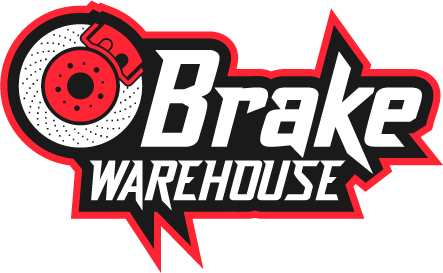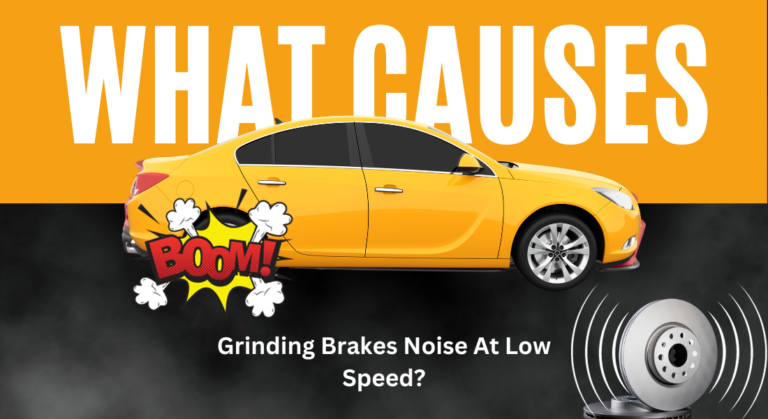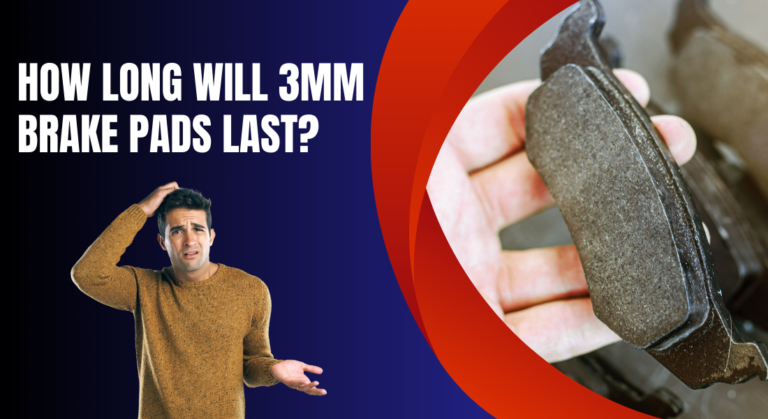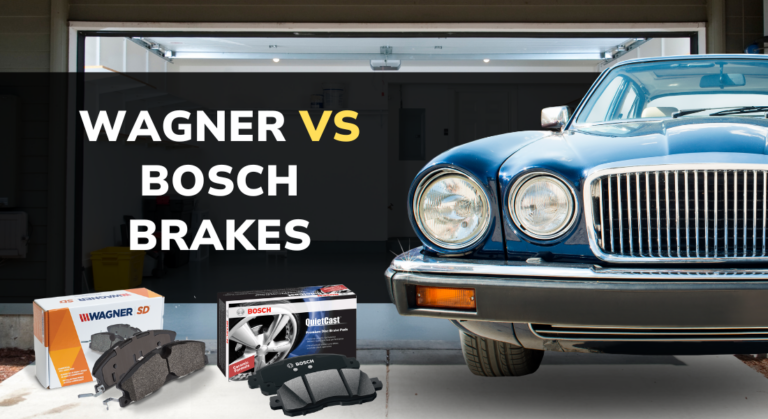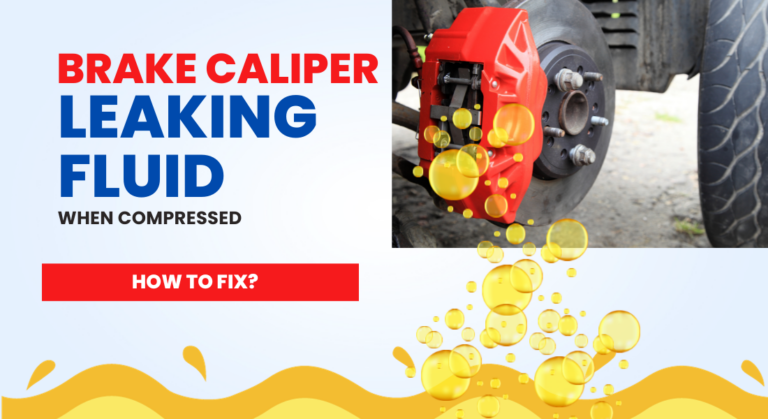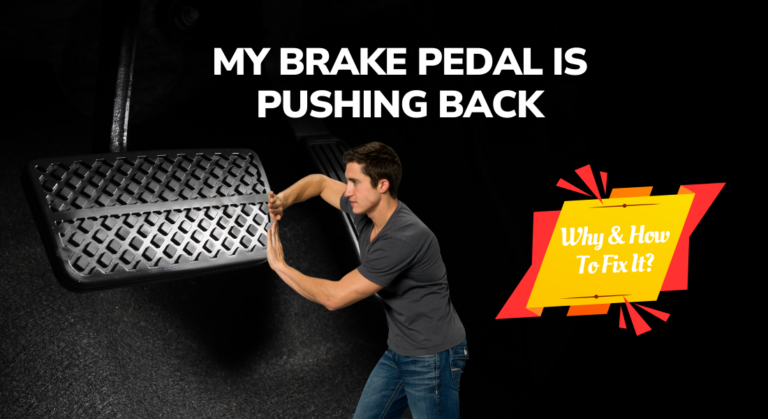Master Cylinder Failure After Brake Job: The Causes & Fixes
We know how important the master cylinder in our car is. If you see this fails to work properly after a brake job, it’s frustrating. But, there are reasons behind this and you need to look at it right away to the issues to get optimal performance.
In this guide, we have listed the reasons why the master cylinder fails after the brake job. We discussed the reasons in detail with their optimal solutions.
So, to get all the answers in detail, you need to keep on reading. Let’s get your master cylinder back by resolving the issues.
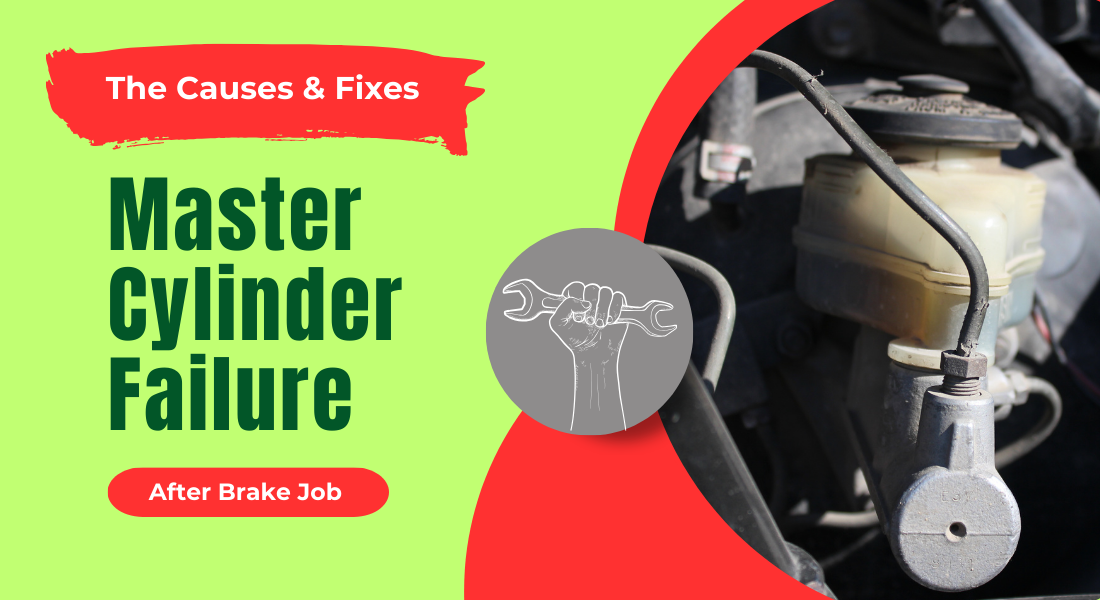
Why Does A Master Cylinder Fail After A Brake Job?
The master cylinder failure after a brake job can be due to the piston bore wearing out. It can also fail if its valve is damaged and there is a fluid leakage.
Now, to know about the causes of the master cylinder failure after a brake job, take a look into the details. We have got here a detailed discussion below about the causes that lead to this problem.
Reason 1: Piston Bore Wearing Out
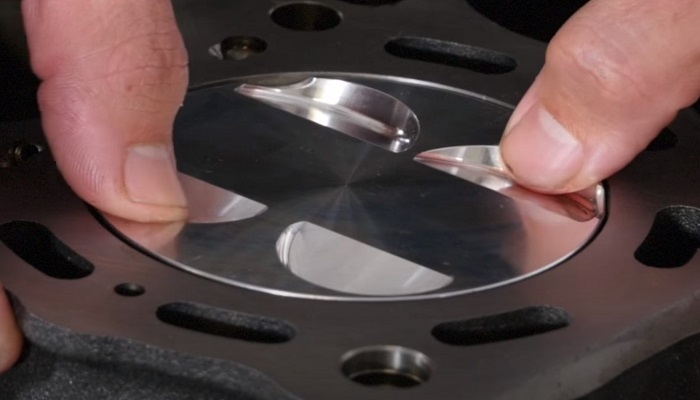
The piston bore helps the master cylinder function by transferring the force to the crankshaft. Now, if this piston bore wears out over time, it can not complete this action.
This piston and the bore wear out with time mainly due to the congregation of dust and debris around these.
Now, due to this, the master cylinder can not complete its action. This is why it is not able to convert the manual force to hydraulic pressure. As a result, this master cylinder fails to work.
Reason 2: A Damaged Master Cylinder Valve
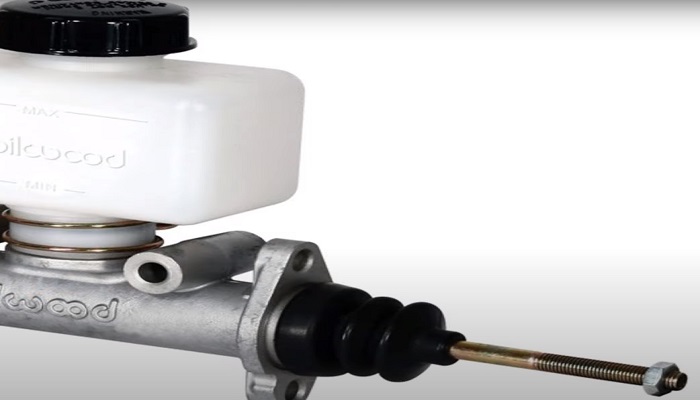
The master cylinder will start malfunctioning if its valve is damaged. Its valve mainly controls the flow of the fluid.
Now, if the valve is broken or damaged, there might be an overflow all of a sudden. Due to this, there will be more hydraulic pressure for a certain amount of manual force on the brake pedals.
Reason 3: Fluid Leakage
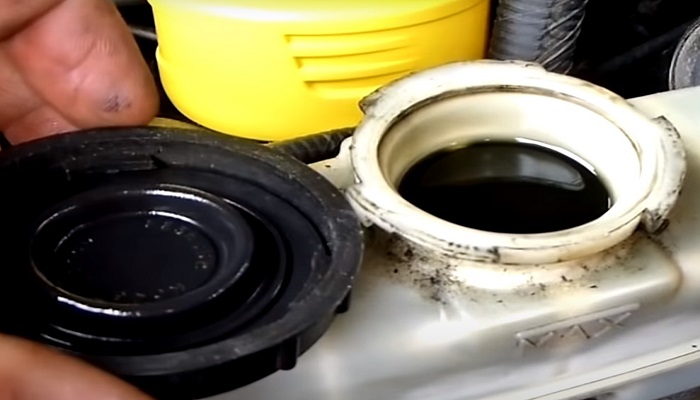
Fluid leakage in your car can cause a number of issues and a master cylinder failure is one of them. Due to this, the fluid will keep on decreasing exponentially in a very less time.
As a result of this, your master cylinder will not be able to transfer enough fluid to generate hydraulic pressure. For this, your car can not get enough pressure to brake when you press the pedals.
You will even see the brake pedals being mushy, sinking, and loose. Thus, you will get less output when you press the brake pedals with this issue.
Read Also: Bad Master Cylinder or Air in Brake Lines? Find The Culprit
What Happens When The Master Cylinder Fails?
You now know the causes behind a failing master cylinder after a brake job. Here are the common consequences of a failing master cylinder.
Consequence 1: Car Brakes Not Working
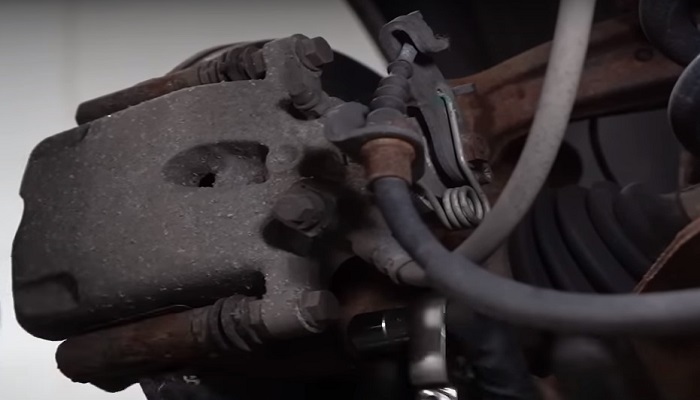
With a bad master cylinder, your car brake will start malfunctioning in no time. This is because the brake pedals will not operate as they usually do.
Note that you need to exert more and more pressure over time to let your car brake work. This will actually worsen the condition of the brake pedal.
Read Also: Brake Pedal Goes to Floor after Bleeding – Why & How To Fix?
Consequence 2: Engine Hampering
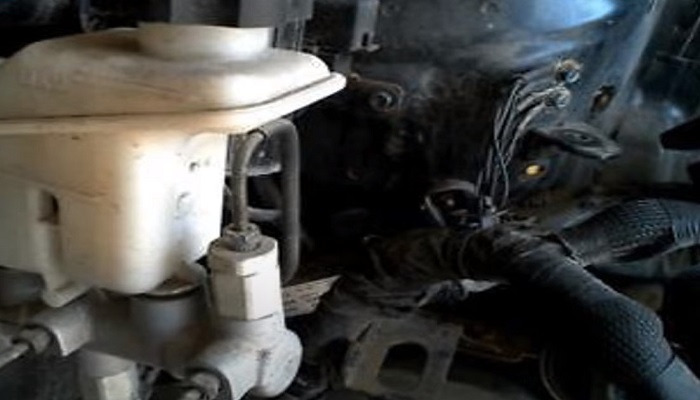
If the master cylinder fails to work properly, your car engine might be hampered with its usual functions.
This mainly happens if the brake fluid flows back to the engine area. It will get congested and the dirt particles from the fluid might jam the area around it.
Over time, the engine will be overheating and cause issues to your car.
How To Fix A Failing Master Cylinder?
The ideal way to fix the master cylinder is to replace it. Here is how to replace the master cylinder of your car.
Step 1: Remove the Brake Lines
Take a wrench with a 10-mm hole on the top. Place it on the bolt, and whack to loosen it. As you loosen the bolt, you can remove the brake lines.
Step 2: Take off the Master Cylinder
This time you need a bigger wrench which has a hole of 12 mm on the top. Now, remove the big two bolts that hold the cylinder in place.
As you remove the bolts, you can simply pull the master cylinder to take it off completely.
Step 3: Install the New Master Cylinder
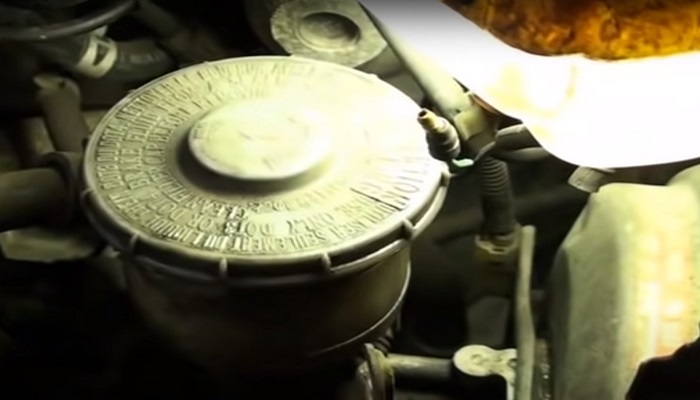
Finally, you need to install the new master cylinder (Our Pick) just the way you took off the old one. You put it in place and tighten it with 2 big bolts.
After that, you will have to fasten the brake lines. For your information, do not forget to fill the new master cylinder with brake fluid.
Tips To Prevent The Master Cylinder from Further Failure
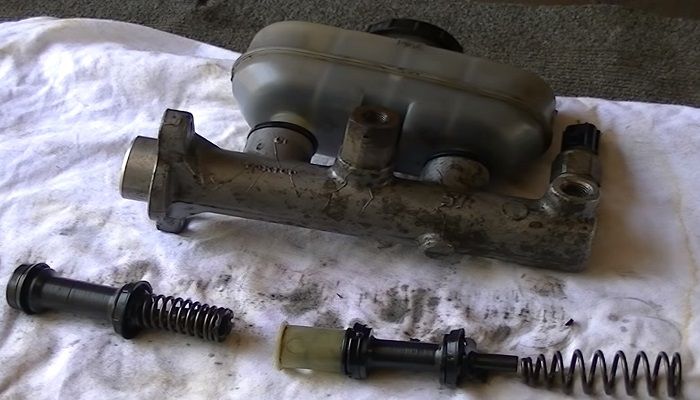
Here, are a few tips that you can follow to keep your car’s master cylinder good and prevent failure. Take a look now.
- Keep the master cylinder and the area around it clean all the time. Make sure there is no dirt or contamination. Keeping it clean is one of the most important things about a master cylinder.
- Make sure you keep an eye on the piston rod so that it remains clean.
- Check and refill the brake fluid whenever it is needed. You can also check the brake fluid using a checklist.
- Try to maintain a certain limit of remaining fluid to refill it.
- Do not go extremely hard by pressing the brake pedals. This can create sudden pressure on the master cylinder and make the brake pedals mushy.
- Let your car rest, especially if you are going for very long drives or journeys. Try to take breaks after 2 to 3 hours of continuous driving.
Frequently Asked Questions
You have got the answer to your query. Now, this segment covers a few additional relevant insights about this.
Is it possible for the master cylinder to malfunction without a leak?
Yes, the master cylinder might malfunction or fail even without a leak. This has a piston inside it which has different channels for each line. Due to this, there might not be any leaks even if the cylinder has issues working properly.
Is it okay to replace a bad master cylinder myself?
Yes, it is okay to replace a bad master cylinder by yourself as it is not overly complicated. However, you must have a basic knowledge of automotive and master cylinders. In case of having no prior knowledge, get the help of an expert.
How much does it cost to replace a master cylinder?
The cost to replace a master cylinder can vary, depending on the mechanic, and its availability. However, you need to spend at least $160 to $550 at max. On average, the cost is around $350 in many states.
The Final Words
Now you have a complete idea about the problem of the master cylinder failure after the brake job! We believe you can now understand its causes and can resolve the issue easily.
As we have come to the end of this article, here is a last tip for you. If you ever see mushy brake pedals, you need to stop the car and look at it right away.
Note that a mushy brake pedal can lead to fatal accidents if you fail to fix it on time. We wish you good luck!

Meet Zayan, the mechanical genius behind the highly acclaimed brakes problems and solutions website. With over a decade of hands-on experience in the automotive industry, Zayan has become a trusted authority in the realm of brake systems.
His passion for cars, coupled with his expertise in solving complex brake-related issues, has earned him a devoted following of car enthusiasts, mechanics, and everyday drivers seeking reliable guidance.
